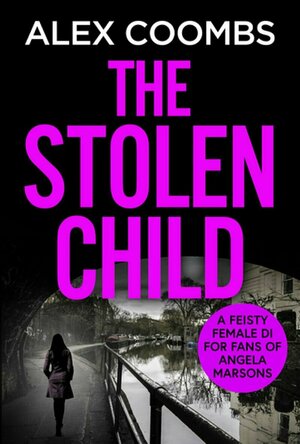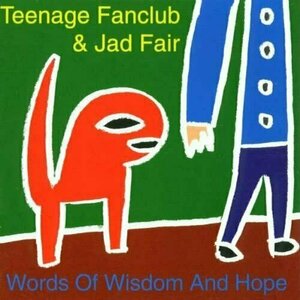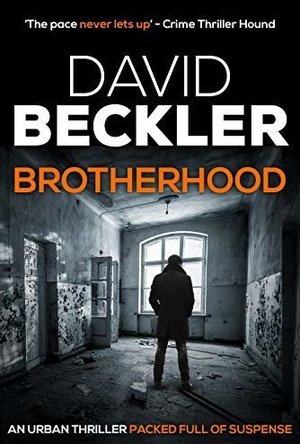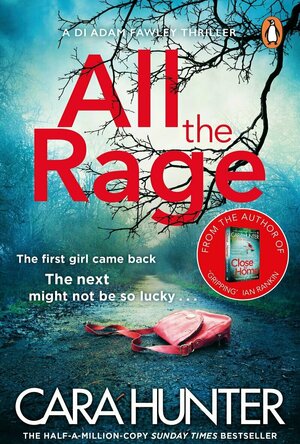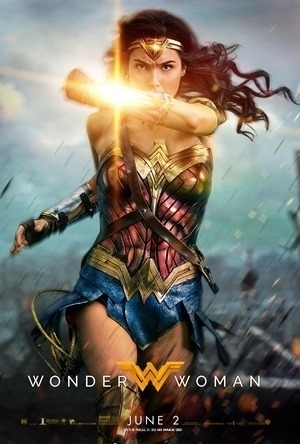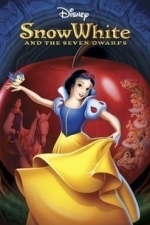Search
Hazel (2934 KP) rated The Stolen Child (Hanlon Series #1) in Books
Jan 21, 2021
Well, crikey, that was a tough but exciting read that I wasn't able to put down despite the content.
I haven't read anything by this author before and missed this first time round when it was published under a different name but I'm so glad I didn't let it pass me by this time because what a treat it is, although it should come with a warning as there are some very unsavoury sections regarding child abuse that will upset people so be warned.
What we have here is a hard-hitting, gritty and dark story that starts at a fairly gentle pace whilst introducing the main characters but then, wow, it ramps up and doesn't stop until the end. The characters are exceptional and so well described that I could clearly see them in my mind.
The main character, DI Hanlon, is driven by her own form of justice and won't shy away from any situation even if it goes against the letter of the law - she will do what it takes to bring those responsible for despicable crimes to justice and she doesn't hold back. She is one tough cookie and I doubt any miscreant out there would want to be on her bad side!
The sense of tension Mr Coombs developed was palpable and the emotions this book evoked were so strong that I actually felt my heart-rate climbing and experiencing real anger and hatred towards some of the characters - not many books do that which, to me, shows the ability of the author to really draw you in and develop people and situations that get under your skin.
Due to the subject matter and the level of violence contained, this won't appeal to everyone however I would certainly recommend it to those who enjoy a less than flowery police procedural that is likely to be more realistic than most other books in the genre.
Many thanks to Boldwood Books and NetGalley for my copy in return for an honest, unbiased and unedited review and for introducing me to yet another excellent British author.
I'm off to read the second in the series now - The Innocent Girl.
I haven't read anything by this author before and missed this first time round when it was published under a different name but I'm so glad I didn't let it pass me by this time because what a treat it is, although it should come with a warning as there are some very unsavoury sections regarding child abuse that will upset people so be warned.
What we have here is a hard-hitting, gritty and dark story that starts at a fairly gentle pace whilst introducing the main characters but then, wow, it ramps up and doesn't stop until the end. The characters are exceptional and so well described that I could clearly see them in my mind.
The main character, DI Hanlon, is driven by her own form of justice and won't shy away from any situation even if it goes against the letter of the law - she will do what it takes to bring those responsible for despicable crimes to justice and she doesn't hold back. She is one tough cookie and I doubt any miscreant out there would want to be on her bad side!
The sense of tension Mr Coombs developed was palpable and the emotions this book evoked were so strong that I actually felt my heart-rate climbing and experiencing real anger and hatred towards some of the characters - not many books do that which, to me, shows the ability of the author to really draw you in and develop people and situations that get under your skin.
Due to the subject matter and the level of violence contained, this won't appeal to everyone however I would certainly recommend it to those who enjoy a less than flowery police procedural that is likely to be more realistic than most other books in the genre.
Many thanks to Boldwood Books and NetGalley for my copy in return for an honest, unbiased and unedited review and for introducing me to yet another excellent British author.
I'm off to read the second in the series now - The Innocent Girl.
Natasha Khan recommended Words Of Wisdom And Hope by Teenage Fanclub and Jad Fair in Music (curated)
ClareR (6054 KP) rated Brotherhood in Books
Apr 2, 2019
Byron is called home to Manchester by his panicked teenage nephew, Philip, when he becomes embroiled in the murder of one of his school friends. Philip is adamant that he is innocent, and Byron believes him. Unfortunately, the murdered boy has a rather dangerous family, and there is history between the leader of this family and Byron.
Byron is helped by his friend Adam, who was in the Marines with him, and they try to solve the murder to hopefully exonerate Philip.
I really enjoyed this book. Byron and Adam seemed like really nice people, believe it or not, even though they knew how to handle themselves and there was consequently a fair bit of violence!
There was the added interest and/ or complication of an African child soldier who had been adopted by a British couple. I really felt very sad for him as I read his flashbacks; he had led an awful, violent childhood.
This looks as though it’s the start of a really good series. I liked that Byron and Adam appeared to have an equal status in their little team, and the police officers and procedures all seemed genuine to me (but then I’m not a police officer!). It was such a fast, exciting read, and I really did gasp out loud a couple of times whilst I was reading! I’ll be interested to see where this series goes next.
Many thanks to Sapere books for my copy of this book, which I hope I’ve fairly reviewed!
Byron is helped by his friend Adam, who was in the Marines with him, and they try to solve the murder to hopefully exonerate Philip.
I really enjoyed this book. Byron and Adam seemed like really nice people, believe it or not, even though they knew how to handle themselves and there was consequently a fair bit of violence!
There was the added interest and/ or complication of an African child soldier who had been adopted by a British couple. I really felt very sad for him as I read his flashbacks; he had led an awful, violent childhood.
This looks as though it’s the start of a really good series. I liked that Byron and Adam appeared to have an equal status in their little team, and the police officers and procedures all seemed genuine to me (but then I’m not a police officer!). It was such a fast, exciting read, and I really did gasp out loud a couple of times whilst I was reading! I’ll be interested to see where this series goes next.
Many thanks to Sapere books for my copy of this book, which I hope I’ve fairly reviewed!
Hazel (2934 KP) rated All The Rage (DI Adam Fawley #4) in Books
Dec 30, 2019
Highly entertaining
I have to say that I thoroughly enjoyed this book and ate it up in super quick time. I read Close to Home, book 1 in the series, immediately before this one and I think this enhanced my enjoyment of this story as it gave a bit more meat to the characters but having said that, I think it would work as a standalone.
A young woman is attacked but doesn't want the police involved and then it happens again; both cases bearing a striking resemblance to an old case Fawley was involved in where the perpetrator was imprisoned ... could this be a copy-cat or has an innocent man been in jail for many years?
Once again, we are treated by Ms Hunter with her excellent characters, dark and gritty story line, intrigue and suspense all wrapped up in this fast paced, page-turning thriller with twists and surprises along the way. All this and the use of social media excerpts, court and interview transcripts woven, throughout make this feel current and relevant.
This will not be my last of reading Ms Hunter's books and I highly recommend to those who enjoy police procedural/thrillers with complex story lines which are easy to follow and that are highly entertaining ... can't wait for book 5!
Thank you to Penguin Books (UK) and NetGalley for my copy in return for an honest and unbiased review.
A young woman is attacked but doesn't want the police involved and then it happens again; both cases bearing a striking resemblance to an old case Fawley was involved in where the perpetrator was imprisoned ... could this be a copy-cat or has an innocent man been in jail for many years?
Once again, we are treated by Ms Hunter with her excellent characters, dark and gritty story line, intrigue and suspense all wrapped up in this fast paced, page-turning thriller with twists and surprises along the way. All this and the use of social media excerpts, court and interview transcripts woven, throughout make this feel current and relevant.
This will not be my last of reading Ms Hunter's books and I highly recommend to those who enjoy police procedural/thrillers with complex story lines which are easy to follow and that are highly entertaining ... can't wait for book 5!
Thank you to Penguin Books (UK) and NetGalley for my copy in return for an honest and unbiased review.
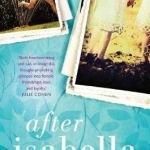
After Isabella
Book
'A compelling and provocative read, nicely paced and thoroughly absorbing. At times, both...
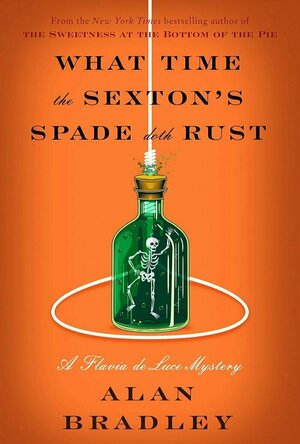
What Time the Sexton’s Spade Doth Rust
Book
Flavia de Luce has taken on the mentorship of her odious moon-faced cousin Undine, who has come to...
Connor Sheffield (293 KP) rated Wonder Woman (2017) in Movies
Jun 1, 2017
Beautiful visuals (3 more)
Gal Gadot is a strong and sexy Diana
A war film with comic book fantasy
The strong messages within the film
Bringing a God to a Gun Fight
So I may be a little biased as I am a huge DC fan, but that doesn't mean every DC film gets the top rating from me, because I know that most of the DC films, somewhat especially as of recent, haven't quite grasped the ability to merge comic book elements with great film elements....this film has nailed it.
Gal Gadot has brought the character of Wonder Woman, a.k.a Diana Prince, to the big screen with such power that is unmatched by any other female comic book character. She's strong, sexy, charming and innocent to the ways of the world outside of Themyscira.
The effects of this film bring to the big screen, stunning visuals, a dull colour overtone to add to the atmosphere of the effects of war on the world that really make you aware of just how important the situation of the world is, and why Diana has truly been sent to help. The team of brilliant minds behind this film have managed to bring the glowing lasso, the powers of Wonder Woman herself, and the deviating effects of war into a perfectly organized combination that makes you feel like you're watching a war film with comic book fantasy elements, not just a comic book film that contains a war.
There's humour that is brought forth via Diana's innocence of the world outside of her home on Paradise Island. She learns the deviation of the many deaths that the war has brought to the world, but through her companion, Steve Trevor, she learns of the joys of how life was before, and how it could be again, when there is no more war.
The film is full of moments that make you want to laugh, cry or watch in awe as Wonder Woman proves to the men in the war that women are not as weak and frightened as they thought at the time. It's hard for her not to in her own film, but she truly steals the show, and you want nothing more than to see her kick ass.
The choreography of the fight sequences are sleek and beautiful in themselves. The fight on Themyscira reminded me somewhat of 300, if the Spartans were all badass Amazonians with bows and arrows, and horses. The beautiful slow motion shots are used to portray the power of these beautiful warriors, and the best slow motion shot takes place in the war, at No Man's Land.
This scene is cinematic beauty! Wonder Woman steps ups the ladder and stands strong as she makes her way across No Man's Land, deflecting bullets and proving that whilst no man can cross, She can, and will! Gal Gadot's beauty shines through amongst the dim and dull overtone of the film and she truly portrays that she is a Goddess amongst the world of men.
Overall I highly recommend this film! You'll laugh, you'll cry (possibly...unless you're a robot), and you'll sit in awe of Wonder Woman as she kicks ass and proves that you shouldn't send men to do a woman's job ;)
Gal Gadot has brought the character of Wonder Woman, a.k.a Diana Prince, to the big screen with such power that is unmatched by any other female comic book character. She's strong, sexy, charming and innocent to the ways of the world outside of Themyscira.
The effects of this film bring to the big screen, stunning visuals, a dull colour overtone to add to the atmosphere of the effects of war on the world that really make you aware of just how important the situation of the world is, and why Diana has truly been sent to help. The team of brilliant minds behind this film have managed to bring the glowing lasso, the powers of Wonder Woman herself, and the deviating effects of war into a perfectly organized combination that makes you feel like you're watching a war film with comic book fantasy elements, not just a comic book film that contains a war.
There's humour that is brought forth via Diana's innocence of the world outside of her home on Paradise Island. She learns the deviation of the many deaths that the war has brought to the world, but through her companion, Steve Trevor, she learns of the joys of how life was before, and how it could be again, when there is no more war.
The film is full of moments that make you want to laugh, cry or watch in awe as Wonder Woman proves to the men in the war that women are not as weak and frightened as they thought at the time. It's hard for her not to in her own film, but she truly steals the show, and you want nothing more than to see her kick ass.
The choreography of the fight sequences are sleek and beautiful in themselves. The fight on Themyscira reminded me somewhat of 300, if the Spartans were all badass Amazonians with bows and arrows, and horses. The beautiful slow motion shots are used to portray the power of these beautiful warriors, and the best slow motion shot takes place in the war, at No Man's Land.
This scene is cinematic beauty! Wonder Woman steps ups the ladder and stands strong as she makes her way across No Man's Land, deflecting bullets and proving that whilst no man can cross, She can, and will! Gal Gadot's beauty shines through amongst the dim and dull overtone of the film and she truly portrays that she is a Goddess amongst the world of men.
Overall I highly recommend this film! You'll laugh, you'll cry (possibly...unless you're a robot), and you'll sit in awe of Wonder Woman as she kicks ass and proves that you shouldn't send men to do a woman's job ;)
RəX Regent (349 KP) rated Snow White and the Seven Dwarfs (1937) in Movies
Mar 7, 2019
Darker than you might expect...
Contains spoilers, click to show
The first of Walt Disney's historic features was a pleasure to watch. Beautifully animated with deceptively gentle strokes, we are delicately guided through the Brothers Grimm's fairy tale. But this is still a fairy tale and a 1930′s film, made at a time where stories were not so toned down for our children, and a healthy dose of fear and horror was not shied away from.
Snow White is definitely a ditsy princess, so innocent that her counter has to be the personification of pure evil and she certainly is. The Queen, represents some of our darkest emotions, and there is little effort to tone this down, which I liked, a lot. She is evil, driven by her vain jealously to firstly attempt to have Snow White murdered, and then failing that, to poison her into a narcoleptic state and have her buried alive! Is this what you now think of a s Disney film, with a U rating? No, but thanks to this and the following films successes, this is a prized classic and untouchable. I think that this is a true family movie, with as much darkness as there is light, with some great musical numbers, indelible characters and an animation style which is truly timeless.
I mean this is a musical which was made in Technicolor less than ten years after the innovation of sound was introduced to black and white films. This is a film which children feel a part of and don't even compare to black and white's of the same era, which of course, they hate and don't feel are real.
Hats off to Walt, who I must admit, I've never really been a fan of, but I'm working my way through his classics and am liking what I am seeing so far.
Snow White is definitely a ditsy princess, so innocent that her counter has to be the personification of pure evil and she certainly is. The Queen, represents some of our darkest emotions, and there is little effort to tone this down, which I liked, a lot. She is evil, driven by her vain jealously to firstly attempt to have Snow White murdered, and then failing that, to poison her into a narcoleptic state and have her buried alive! Is this what you now think of a s Disney film, with a U rating? No, but thanks to this and the following films successes, this is a prized classic and untouchable. I think that this is a true family movie, with as much darkness as there is light, with some great musical numbers, indelible characters and an animation style which is truly timeless.
I mean this is a musical which was made in Technicolor less than ten years after the innovation of sound was introduced to black and white films. This is a film which children feel a part of and don't even compare to black and white's of the same era, which of course, they hate and don't feel are real.
Hats off to Walt, who I must admit, I've never really been a fan of, but I'm working my way through his classics and am liking what I am seeing so far.
Deborah (162 KP) rated Winter King: The Dawn of Tudor England in Books
Dec 21, 2018
There's an old Chinese curse that runs "may you live in interesting times". Penn throws some new light on an era that certainly can be described as 'interesting' and somewhere I'm sure I wouldn't want to be living!
The Winter King of the title is Henry Tudor. Although more a history of the reign than biography (his early life is described only in brief), Henry doesn't come across as particularly likeably - not someone you'd like to sit down to dinner with! His whole style of kingship seems to be based around control of everyone around him and control was often achieved through financial means rather than physical threat. The story unfolds as almost horrific where we see innocent people 'informed' against, imprisoned illegally, tried with 'packed' juries and presented with crippling fines! The wonder really is that such a king was not overthrown! We see here how the notorious Empson & Dudley really worked, and although in a way they were scapegoats for many in the old Henrician regieme when Henry VIII came to the throne, you can see how imprisoning and then executing this unpleasant pair would have been a great crowd-pleasing move!
This book also shines some light on other charaters; it goes someway to explaining the later behaviour of Henry VIII for starters! The insight into the relationship of Philip of Burgundy and Juana of Castile was brief, but enlightning.
Many Tudor writers go straight for the two obvious targets; the larger than life Henry VIII and his daughter, Elizabeth I, so here it made an interesting change to see the earlier Tudor world and how Henry VIII grew up in this; even if it was a place full of paranoid and insecurity!
The Winter King of the title is Henry Tudor. Although more a history of the reign than biography (his early life is described only in brief), Henry doesn't come across as particularly likeably - not someone you'd like to sit down to dinner with! His whole style of kingship seems to be based around control of everyone around him and control was often achieved through financial means rather than physical threat. The story unfolds as almost horrific where we see innocent people 'informed' against, imprisoned illegally, tried with 'packed' juries and presented with crippling fines! The wonder really is that such a king was not overthrown! We see here how the notorious Empson & Dudley really worked, and although in a way they were scapegoats for many in the old Henrician regieme when Henry VIII came to the throne, you can see how imprisoning and then executing this unpleasant pair would have been a great crowd-pleasing move!
This book also shines some light on other charaters; it goes someway to explaining the later behaviour of Henry VIII for starters! The insight into the relationship of Philip of Burgundy and Juana of Castile was brief, but enlightning.
Many Tudor writers go straight for the two obvious targets; the larger than life Henry VIII and his daughter, Elizabeth I, so here it made an interesting change to see the earlier Tudor world and how Henry VIII grew up in this; even if it was a place full of paranoid and insecurity!
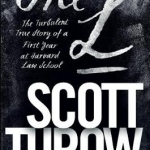
One L: The Turbulent True Story of a First Year at Harvard Law School
Book
One L, Scott Turow's journal of his first year at law school introduces and a best-seller when it...
